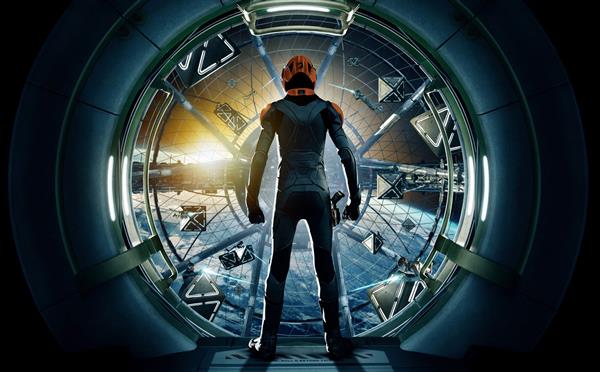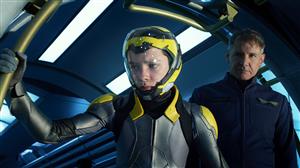

Ender’s Game is a science fiction film based on the 1985 young adult novel of the same name by Orson Scott Card. Asa Butterfield (Hugo) plays Ender Wiggin, a 12-year-old with a skill for strategy that puts him at the top of the list of candidates for Battle School, an academy for genius level tweens trained to be the military’s leaders of tomorrow. Ender’s every move is under surveillance in a distant future world, watched over by his recruitment officers Col. Graff and Maj. Anderson, believing Ender to be the brilliant military mind they’ve been waiting for ever since a bug-like alien race known as the Formics almost wiped out human civilization nearly half a century ago.
Butterfield carries the film. With a meek frame and piercing stare, he imbues Ender with the contradictory combination of youthful innocence and dangerous intelligence required for the role. Ender’s isolation is palpable; as he yearns for friendship and camaraderie his exceptionalism sets him apart, making him the target of bullies and placing him above would-be, perfectly-cast peers, all while being pushed by the domineering Col. Graff. (Harrison Ford, for whom the legacy lends the actor his gravitas.)
South African writer/director Gavin Hood (X-Men Origins: Wolverine, Tsotsi) manages well the task of wrangling the book’s greater philosophical quandaries with the equally interesting insularity of Ender Wiggin’s Battle School experiences. Ender’s struggle between violence and compassion plays out in both large and small scale. Though diehards may be upset by the omission of Ender’s siblings’ media take-over subplot, the heart of the novel remains intact, but be warned, its heart is darker and heavier than its contemporary young adult fare. The story is aided by some good production design as well, combining subtle futurisms and understated ’80s influence to create a believable future where windows double as TV screens and children’s military academies hang in Earth’s orbit.
If there is one complaint to be made it’s the scarcity of the zero-gravity war simulations in which Ender proves his mental superiority over both his peers and his superiors. A cross-breed of laser tag, freeze tag and football, the war game is easily the most exciting part of both the book and the movie, unfortunately given much less story time in the latter.













